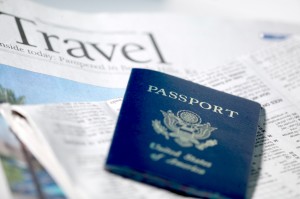Canadians traveling to the US and other countries need to understand the rules when they are out of the country to avoid having to pay a lot more tax than they should. Snowbirds taxed at higher rates make investments very risky as a result. Here is what we have found and will update this as time goes on and more information becomes available.
Snowbirds Taxed – Substantial Presence Test
To meet the substantial presence test, you must have been physically present in the United States on at least:
- 31 days during the current year, and
- 183 days during the 3 year period that includes the current year and the 2 years immediately before. To satisfy the 183 days requirement, count:
- All of the days you were present in the current year, and
- One-third of the days you were present in the first year before the current year, and
- One-sixth of the days you were present in the second year before the current year.
Here is the link
http://www.irs.gov/taxtopics/tc851.html
The page was last updated Dec 19,2012
Current Ontario Rules
Current Ontario rules allow 212 days out of province per year for Ontario with no consequences
US rules allow 182 days per year with a 3 year average of 120 days without need for visa or consequences
Read below for proposed changes and tax consequences within the USA. No real consequences regarding tax for Canadians who over stay just loss of benefits.
***** *A proposed travel law going through the U.S. Senate could have serious tax consequences for Canadian snowbirds, experts say.
* * * *The good news is that the JOLT Act, (Jobs Originated through Launching Travel), would allow Canadian retirees to spend up to eight months, or 240 days, each year in the U.S. without a visa. That’s almost two months longer than the current 182-day annual limit. The bad news is that snowbirds who spend that long in the U.S. may be required to pay U.S. taxes.
“It looks like a great deal. I can be in Palm Springs for 240 days., but they didn’t tell you that it comes with a very high tax cost,” Roy Berg, international tax lawyer at Moodys Gartner Tax Law in Calgary, said in an interview.
The changes, part of a U.S. immigration reform bill introduced in the Senate on April 15, are likely to become law, but it is not clear when they would take effect, observers say.
Would-be holders of the so-called Snowbird or Canadian retiree visa could become subject to U.S. income tax and estate tax, “and would, therefore, inadvertently light the fuse on the Snowbird Visa tax bomb,” Berg wrote in a recent article.
US Travel Rules
Under the current rules, those who spend more than 182 days out of 365 days in the calendar year, or more than 120 days per year on average over a three-year period, may be considered a U.S. resident for tax purposes.
The U.S. also imposes an estate tax on the value of certain individuals’ worldwide assets owned at death, Berg said. The estate tax could take effect even for someone who lives in the U.S. for a brief time, depending on the circumstances.
Kevin Nightingale, partner at tax consulting firm MNP, a specialist in U.S. and Canadian tax, agrees that the consequences may be serious.
“Canadians who are going to take advantage of these provisions have to be careful because if they stay in the U.S. for long amounts of time, they will be treated as U.S. residents for tax purposes,” Nightingale said.
Staying out of the country for more than 212 days can also put eligibility for health insurance at risk in Ontario, he added.
Form 8840
Snowbirds are typically advised to file a Form 8840, Closer Connection Exception statement with the U.S. Internal Revenue Service, said Michael MacKenzie, executive director of the Canadian Snowbird Association, which has about 75,000 members.
“Regular snow birds are very aware of the tax consequences with respect to the current situation. So I’m quite confident they would understand there would be an issue if they spent longer in the U.S.,” MacKenzie said.
He said that the association has been in discussions with U.S. lawmakers to ensure that tax changes would follow the proposed visa changes.
The aim of the bill is to boost the travel industry, which currently employs about one in eight Americans.
The expanded visa would be eligible to Canadian citizens who are age 55 or older, have a residence in Canada, own or rent a residence in the U.S. They will not work or seek social assistance benefits during their stay in the U.S.
Those who are outside of Ontario for more than 212 days in a 12-month period because they are studying, working, vacationing, or doing missionary work, can apply for continuous OHIP eligibility.
The Canadian Snowbird Association estimates that there are over 500,000 Canadians that spend the winter in Florida each year. It defines snowbirds as those spending 31 nights or more in a southern destination.
 Why is it that tractor-trailers pulling huge loads never slow down regardless of what the road conditions are? Trucks never slow down regardless of the conditions. We just came back from traveling between Ottawa and Montreal. It was a very rainy day with lots of spray and poor visibility. We were passed by several trucks all going over the speed limit without any regard to traffic around them.
Why is it that tractor-trailers pulling huge loads never slow down regardless of what the road conditions are? Trucks never slow down regardless of the conditions. We just came back from traveling between Ottawa and Montreal. It was a very rainy day with lots of spray and poor visibility. We were passed by several trucks all going over the speed limit without any regard to traffic around them.

 We just purchased our travel insurance for our next trip, actually travel health insurance. Each year it gets more expensive and this is generally due to age and related health issues. We have found that if you have any existing conditions that are stable you can still obtain health insurance, although the price will be higher than it would be if you did not have the health issue. It is all about the risk of a claim and how much money they will be able to make off of you. They may not insure existing conditions, but then you do not want to go anywhere without coverage.
We just purchased our travel insurance for our next trip, actually travel health insurance. Each year it gets more expensive and this is generally due to age and related health issues. We have found that if you have any existing conditions that are stable you can still obtain health insurance, although the price will be higher than it would be if you did not have the health issue. It is all about the risk of a claim and how much money they will be able to make off of you. They may not insure existing conditions, but then you do not want to go anywhere without coverage.



 This Papaya Tree in Palm Springs was planted from seed in the backyard of someone’s home in Palm Springs along a golf course. The conditions are excellent for papaya’s with the warm sun and lots of water. They are watered from both the golf course as well as the watering from the persons property. They get the hot western sun every day and lots of sun. Palm Springs receives more sun than just about any other location in the US.
This Papaya Tree in Palm Springs was planted from seed in the backyard of someone’s home in Palm Springs along a golf course. The conditions are excellent for papaya’s with the warm sun and lots of water. They are watered from both the golf course as well as the watering from the persons property. They get the hot western sun every day and lots of sun. Palm Springs receives more sun than just about any other location in the US. Just had a stone chip repaired on my car’s windshield. The shop I went to was Safelite Autoglass Repair. I know it was a Monday morning, but they took me in at 9:00 am and I was finished 20 minutes later! This is the third time I used their services and I have been more than satisfied each time. They offer great service and each time, I was able to have my car serviced within 30 minutes of arriving at their facility.
Just had a stone chip repaired on my car’s windshield. The shop I went to was Safelite Autoglass Repair. I know it was a Monday morning, but they took me in at 9:00 am and I was finished 20 minutes later! This is the third time I used their services and I have been more than satisfied each time. They offer great service and each time, I was able to have my car serviced within 30 minutes of arriving at their facility. This repair is under warranty for as long as I own the car and if the windshield cracks, they will subtract the cost of the original repair from the cost of the new windshield. Coverage is across the US in all states and also in Canada at companies displaying the Safelite logo. The warranty is excellent. We have used this service multiple times we are more than satisfied with this company and their service.
This repair is under warranty for as long as I own the car and if the windshield cracks, they will subtract the cost of the original repair from the cost of the new windshield. Coverage is across the US in all states and also in Canada at companies displaying the Safelite logo. The warranty is excellent. We have used this service multiple times we are more than satisfied with this company and their service. A test of blogging using my iPhone. You can really do a lot with an iPhone including maintaining your blogs while doing the laundry or other activities that involve waiting for something to complete. In this case, I was waiting for the dryer to finish its job, but just as easily could have been shopping with my wife and I could be blogging while I was waiting for her to make a decision on a pair of shoes or a new purse. This is a great tool for writing on blogs.
A test of blogging using my iPhone. You can really do a lot with an iPhone including maintaining your blogs while doing the laundry or other activities that involve waiting for something to complete. In this case, I was waiting for the dryer to finish its job, but just as easily could have been shopping with my wife and I could be blogging while I was waiting for her to make a decision on a pair of shoes or a new purse. This is a great tool for writing on blogs. Working and living in a foreign country can be exciting and rewarding while at the same time both you and your family will learn a great deal about how other cultures live, work and play. With a little planning and knowledge of a foreign countries culture and way of doing business your time in the foreign country can be very successful and rewarding as well.
Working and living in a foreign country can be exciting and rewarding while at the same time both you and your family will learn a great deal about how other cultures live, work and play. With a little planning and knowledge of a foreign countries culture and way of doing business your time in the foreign country can be very successful and rewarding as well. This is a new post to test the posting by email feature available in WordPress. Seems to work well once you understand and read all of the details associated with this function. I have only tried posting by email a couple of times from my smart phone and it was really easy. My new smart phone has an app on it to record and convert my voice to text.
This is a new post to test the posting by email feature available in WordPress. Seems to work well once you understand and read all of the details associated with this function. I have only tried posting by email a couple of times from my smart phone and it was really easy. My new smart phone has an app on it to record and convert my voice to text. We love to travel across the USA and Canada. We travel by car and meet many people doing the same thing as well as folks in RV’s and even on motorcycles. You can follow our travels via this blog as well as learn about places that we have been. Traveling is such an enriching experience. You learn how other people live, varying views as well as see exciting vistas, museums, parks and entertainment venues.
We love to travel across the USA and Canada. We travel by car and meet many people doing the same thing as well as folks in RV’s and even on motorcycles. You can follow our travels via this blog as well as learn about places that we have been. Traveling is such an enriching experience. You learn how other people live, varying views as well as see exciting vistas, museums, parks and entertainment venues.